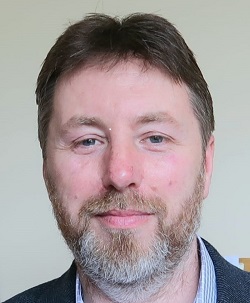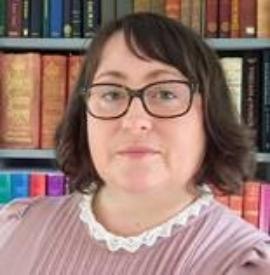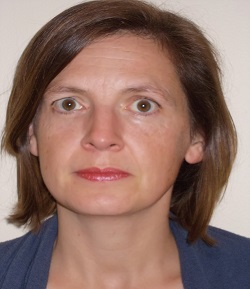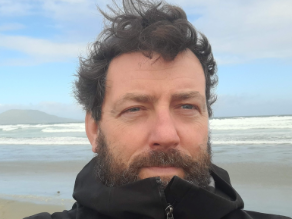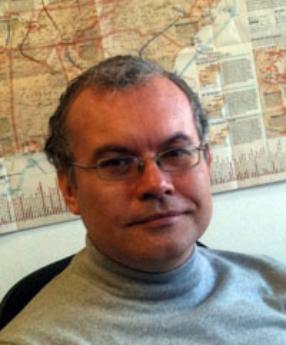-
Courses

Courses
Choosing a course is one of the most important decisions you'll ever make! View our courses and see what our students and lecturers have to say about the courses you are interested in at the links below.
-
University Life

University Life
Each year more than 4,000 choose University of Galway as their University of choice. Find out what life at University of Galway is all about here.
-
About University of Galway

About University of Galway
Since 1845, University of Galway has been sharing the highest quality teaching and research with Ireland and the world. Find out what makes our University so special – from our distinguished history to the latest news and campus developments.
-
Colleges & Schools

Colleges & Schools
University of Galway has earned international recognition as a research-led university with a commitment to top quality teaching across a range of key areas of expertise.
-
Research & Innovation

Research & Innovation
University of Galway’s vibrant research community take on some of the most pressing challenges of our times.
-
Business & Industry

Guiding Breakthrough Research at University of Galway
We explore and facilitate commercial opportunities for the research community at University of Galway, as well as facilitating industry partnership.
-
Alumni & Friends

Alumni & Friends
There are 128,000 University of Galway alumni worldwide. Stay connected to your alumni community! Join our social networks and update your details online.
-
Community Engagement

Community Engagement
At University of Galway, we believe that the best learning takes place when you apply what you learn in a real world context. That's why many of our courses include work placements or community projects.
BA (Joint-Hons) and other Denominated Programmes
First Year BA (Joint-Honours)
Welcome to First Year History!
As you start your First Year in the Department of History, it is important to think about how your study of history will help you, not only to understand the past more, but to understand today’s world. In the course of your studies with us, you will have the opportunity to learn about the medieval, early modern and modern periods, covering many parts of the world – Ireland, Europe, Africa, Asia, Australasia, along with North and South America.
First Year Timetable AY2025-26
Timetable HISK & HI1100 AY2025-26
Important Dates for First Year Students AY2025-26
Head of First Year
Dr Laurence Marley is Head of First Year History. His office location is R. 409, Floor 2, Tower 1.
Email laurence.marley@universityofgalway.ie
He is your first port-of-call if you have any questions or problems. Before emailing on general matters, please first check for information on the History Department webpage. If you have further question, or need clarification, fee free to email or to make an appointment to speak in person or online.
For vital information about assessment and supports, see https://www.universityofgalway.ie/colleges-and-schools/arts-social-sciences-and-celtic-studies/history-philosophy/disciplines-centres/history/undergraduate-courses/
See also general Arts guidelines at https://www.universityofgalway.ie/colleges-and-schools/arts-social-sciences-and-celtic-studies/student-information/first-year-students/
How Does First Year Work?
1BA1 students and BA History Pathways students take 10 ECTS each semester, 20 ECTS for the entire year. This is broken into four modules: two of these are lecture modules, two are tutorial modules. BA Connect students take 15 ECTS, or three modules: two lecture modules, and one tutorial module.
All students attend three lectures a week, from the first to the final week of term, and one tutorial a week, from week three to the final week of term, both semesters.
All lectures and tutorials are in-person, in lecture theatres and classrooms. Any material for First Year History will be available on Canvas under the relevant module code.
What is a lecture?
Lectures cover the content and materials for the modules and give you a sense of what these broad time periods and topics tell us about society and the world. When taking notes at lectures, students perform quite complex feats of comprehension, selection and expression while also listening to the lecturer. So, taking notes turns the lecture hour into an active learning experience.
Lectures will be given by Dr Laurence Marley and Dr Róisín Healy for HI1103 and by Dr Chris Doyle and Professor Enrico Dal Lago for HI1106. Different material is covered in each of the three lectures each week.
What is a tutorial?
A tutorial is a small-group class (maximum 17 students), in which students discuss aspects of what they have learned from both their lectures and their recommended readings. They are also guided to skills in essay writing, referencing, primary sources evaluation, oral presentation, and academic integrity. The tutorial modules HISK1101, HISK1102 and HISK1100 (Skills for Historians) are linked to the content covered in the lecture modules HI1103 and HI1106. The completion of tutorial assessments is necessary to pass the year. Tutorials start in the third week of term, in order to give students time to arrange their timetables for all their subjects. Attendance is compulsory.
Once you have picked your three Arts subjects, you are required to sign up for tutorials via Canvas. All 1BA1 students should log onto Canvas and click on the HISK1101 module. All BA Connect students should log on and click on the HI1100 module. BA History Pathway students have a set tutorial group to ensure that they are placed together. The Head of the BA History Programme will be in touch regarding the time and venue for the tutorial.
Note: Tutorials begin on 6 October. Details of how to sign up will be provided in good time.
Programme Structure
|
Semester 1 |
Semester 2 |
|
HI1103: Europe & Ireland (1789-1918) Lecture module (3x1hr per week) Monday, 11-12, Kirwan Theatre Wed, 11-12, Anderson Theatre Thur, 2-3, Kirwan Theatre Section A (Ireland) is covered in the first half of semester 1 Section B (Europe) is covered in the second half of semester 1 |
HI1106: Early Cultural Encounters in Ireland and the Americas Lecture module (3x1hr per week) Lecture venues: as in Semester 1 Section A (medieval Ireland) is covered in the first half of semester 2 Section B (the Americas) is covered in the second half of semester 2 |
|
HISK1101: Skills for Historians 1 (Tutorial module: 1hr per week) Tutorials begin: 6 October |
HISK1102: Skills for Historians 2 (Tutorial module: 1hr per week) Tutorials begin: 3 February |
Note: Although the BA Connect tutorial module is differently titled and assessed, the students nonetheless attend the same tutorial groups as 1BA students and follow the same timetable for lectures and tutorials.
Module Descriptions
Semester 1
HI1103: Europe and Ireland (1789-1918)
Section A: Ireland, 1789-1918, Dr Laurence Marley
This section of the module provides a survey of social, cultural and political developments in Ireland in the ‘long nineteenth century’, addressing the main themes of faith, land, and the political governance of Ireland. Against the backdrop of the British policy of assimilating the rebellious Irish under the Union of 1800, it examines the popular movements for social and political change, the Great Famine and its legacy, and the dominant ideologies of nationalism and unionism. It concludes with a focus on the general election of 1918, the outcome of which proved crucial in breaking a Union that had been intended to bind Britain and Ireland together as one kingdom, ‘forever’.
Section B: Europe, 1789-1918, Dr Róisín Healy
Europe’s ‘long nineteenth century’ has left the world a very mixed legacy. On the one hand, the political struggles of this period bore fruit in the extension of the vote, the abolition of serfdom, and national independence for many peoples. On the other, this century witnessed the colonial subjugation of much of the world by European powers, a massive increase in the burning of fossil fuels, and prolonged and devastating wars. Spanning the years from the French Revolution to World War 1 (1914-18), this section of the module explores these developments from the perspectives of those who lived through them, with all their hopes, anxieties and imperfections.
Assessment of this module: end-of-term examination (2hrs)
HISK1101: Skills for Historians 1
In this module, you will engage with primary and secondary source material and develop a critical awareness of historical scholarship with a view to developing your own writing and presentation skills. You will learn how to locate different types of historical sources and to analyse them critically. You will also explore the following topics: reading and understanding scholarly articles, academic integrity, note taking, digital resources, and historical debates.
Assessment for this module: see under ‘Tutorial Assessment Explained’.
Semester 2
HI1106: Early Cultural Encounters in Ireland and the Americas
Section A: Ireland and the Early Medieval World, Dr Chris Doyle
After the Western Roman Empire’s disintegration during the fifth century, Ireland emerged as a beacon for Christian civilisation, culture and learning in Europe and beyond. This is truly remarkable, given that Ireland had long been considered by outside observers to be a barbarian, pagan place with strange customs and dangerous inhabitants. Over time, Ireland gained a lasting reputation as the land of ‘saints and scholars’. This section of the module explores changes and developments in Irish society, culture, and religion from the pre-Christian to the Viking Age. The course also examines the Irish contribution to European culture in the same period.
Section B: The Conquest of the Americas, Professor Enrico Dal Lago
This section will introduce students to the history of the Americas before and after their ‘discovery’ and conquest by the Europeans. After a brief overview of late fifteenth-century Spain and Columbus’s voyages, the course will focus on the Aztecs in Mexico and the Incas in Peru and their conquest by Hernan Cortez and Francisco Pizarro in 1519-35. This section will conclude by looking at Spanish colonial society in Latin America.
Assessment of this module: end-of-term examination (2hrs)
HISK1102: Skills for Historians 2
This module continues with the same groups from semester 1, exploring primary sources from medieval Ireland to the Americas and engaging with a wide array of historical documents.
Assessment for this module: see under ‘Tutorial Assessment Explained’.
Who will teach you in First Year?
|
Lecturers |
Tutors |
|
Dr Laurence Marley |
Norma Owens |
|
Dr Róisín Healy |
Dr Jackie Uí Chionna jackie.uichionna@universityofgalway.ie
|
|
Dr Chris Doyle |
|
|
Prof. Enrico Dal Lago |
|
Where It All Happens
Lectures take place in the Kirwan and Anderson theatres, which are on the main Concourse in the Arts/Science Block.
Tutorials will be held in classrooms in this Block and in other parts of the campus.
History Department offices are located on the first and second floors of Tower 1, Arts/Science Block (south campus - no 21 on map linked below).
Tutorial Assessment Explained
HISK1101: Assessment and Weighting
Semester 1
Oral Presentation with (500 words) written assignment: 50%
Essay Assignment (1,500 words): 50%
HISK1102: Assessment and Weighting
Semester 2
Essay Assignment on medieval theme (1,500 words): 50%
Essay Assignment on early modern theme (1,500 words): 50%
HI1100 (For BA Connects Only)
Semester 1
Oral Presentation with (500 words) written assignment: 50%
Semester 2
Written Assignment on medieval theme (500 words): 25%
Written Assignment on early modern theme (500 words): 25%
Note: The format of oral presentations will be explained in the early tutorial sessions, and advice will be given on preparation for all assessments as the term progresses. Every assistance will be provided to enable students to fulfil their module requirements. But you must attend tutorials.
Second Year BA (Joint Honours)
Welcome back!
We are delighted that you have chosen History as one of your degree subjects and look forward to supporting you in your studies. To register for your modules, click here
Modules whose code does not begin with HI will not count towards your ECTS requirements for History.
Second Year students (except Connect students) are required to take:
- 3 lecture modules of 5 ECTS each in Semester 1
- 1 lecture module of 5 ECTS and 1 colloquium module of 10 ECTS in Semester 2
Second Year Connect students are required to take:
- 3 lecture modules of 5 ECTS each in Semester 1
- 1 colloquium module of 10 ECTS in Semester 2
Lecture modules are taught by means of 2 one-hour lectures each week plus 4-5 one-hour tutorials distributed across the semester. Your instructor will provide instructions on signing up for tutorials.
Colloquium modules are taught by means of 1 one-hour lecture per week plus 1 one-hour tutorial per week. All students attend the lecture and one of the two tutorial times. Your instructor will provide instructions on signing up for tutorials.
Choose your modules carefully and promptly. Make sure that the times of your chosen History modules do not clash with one another or with those of compulsory modules for your other subject(s). If you wish to become a secondary school teacher, you should take account of the requirements of the Teaching Council.
Please note that it may not be possible to switch to a module where demand is high. Thus it is essential that you read the module descriptions and study the timetable BEFORE registering!
Assessment for lecture modules consists of:
- one piece of course work, such as a written exercise, an oral examination, or an in-house exam, during the semester worth 33%
- an end-of-term exam worth 67%
Assessment for colloquium modules consists of:
- Participation in class discussion and activities – 10%
- Oral presentation – 15%
- Coursework, as decided by lecturer – 35%
- Final essay based on independent research of 3,000 to 4,000 words – 40%
For more specific information about continuous assessment, exams, supports please go to our Current Undergraduates page.
Head of Second Year History
Dr Kevin O' Sullivan, Room 413, Tower 1, Floor 2
Tel: +353 (0)91 493625
kevin.k.osullivan@universityofgalway.ie
Final Year BA (Joint Honours)
A Chairde: Fáilte romhaibh ar ais!
History welcomes you back!
Modules whose code does not begin with HI will not count towards your ECTS requirements for History.
Structure of Final Year History
What choice of modules do I have?
In the course of your Final Year you shall take one Seminar module and four Lecture Modules.
For Semester One:
- Choose One Seminar (worth 10 ECTS)
- Choose One Lecture Modules (worth 5 ECTS)
For Semester Two:
- Choose Three Lecture Module (each worth 5 ETCS)
SEMINARS AND LECTURE MODULES
Seminars are small group classes with an emphasis on participation, class presentations and continuous assessment that develops your research skills.
The seminar will be assessed by means of Continuous Assessment made up of a variety of innovative forms of assessment that ensure the highest standards of academic integrity.
Lecture modules are medium- to large-size classes taught by means of two one-hour lectures per week by lecturer with additional tutorials (usually 4) over the semester.
Assessment structure for Final Year seminars:
Seminars are assessed differently from lecture modules – how so?
Your grade for a seminar module is made up of the following elements:
| Participation: 10% |
| Oral Presentation: 20% |
| Source evaluation: 20% (c.2,000 words) |
| Long Essay: 50% (c. 5,000 words) |
For further information on your Final Year choices, please see above the Final Year Timetable, for detailed module descriptions and to a list of important dates.
For general information about registration for all types of modules as well as about continuous assessment, exams and student supports please go to our Current Undergraduate History page.
Head of Final Year History
Dr. Gearóid Barry, Room 401, Tower 1, Floor 1.
Phone (091) 493342
Email: gearoid.barry@universityofgalway.ie








